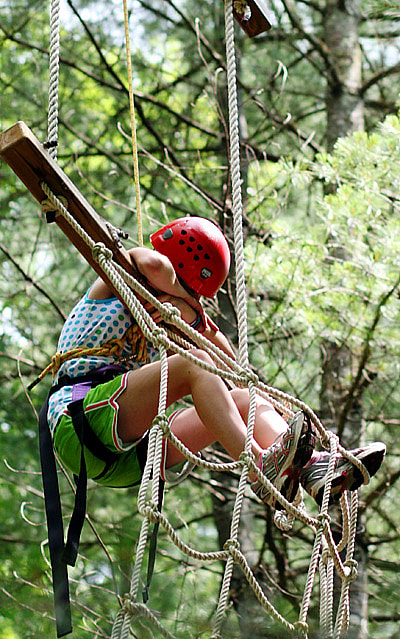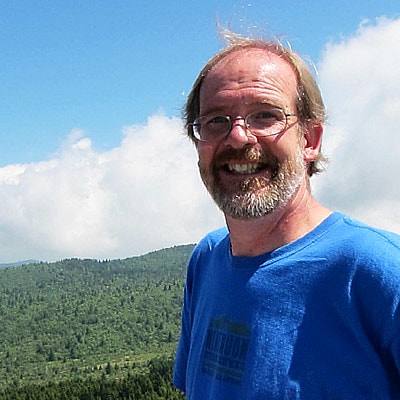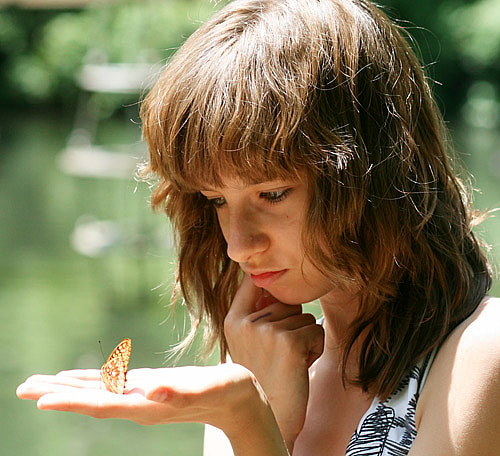Camp is an adventure! It is because it gets girls outside for all kinds of exciting activities. Climb high up a real rock! Paddle a raft down through whitewater rapids. Sleep in the woods far from the “comforts of home.” These, and other outdoor activities, are just plain thrilling.
But why is that? What makes something a thrilling “adventure?”
The answer might be a little surprising, but it actually boils down to danger. It’s true; an adventure activity always carries a degree of risk. It’s an activity where we “take a risk in the hope of a favorable outcome” (as my dictionary puts it). So for example, rock climbing includes the risk of falling. Whitewater boating has the risk of capsizing, and when camping in the wilderness there’s always a chance of horrible weather (among other things!).
But of course adventure isn’t about getting hurt or experiencing some disaster (there’s safety training and equipment to help with that). It’s about avoiding danger despite the threat of it. Adventure is about overcoming the difficulty and conquering the fear associated with an activity.
Adventure activities are thrilling because we can actually do them despite the risk. Through our own efforts, applying specialized knowledge and skills, we succeed in the face of possible failure. Sure it might be a struggle, but it feels great. Yes, an adventure activity can be difficult, but also really exciting to face it and win!
That’s why, incidentally, adventure activities are so good for boosting kids’ confidence.
Being at Rockbrook provides so many great ways to be adventurous, opportunities to try activities that may look a little scary, but then with the right instruction, encouragement and role models, to also manage the risks and cope beautifully with the challenges involved. Very cool stuff!




